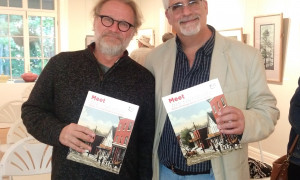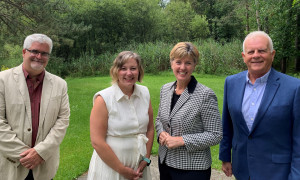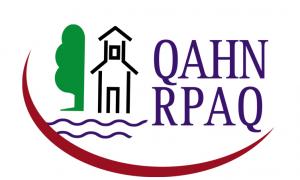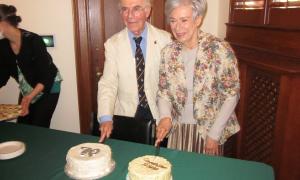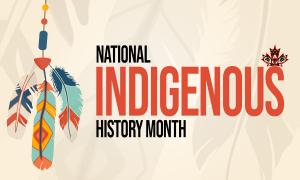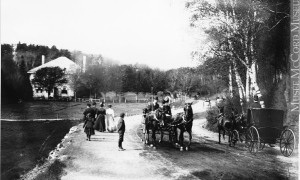News
Sep 19, 2022
--September 19, 2022.
Meet The Network: Profiles of Heritage Groups Across Quebec was produced by the Quebec Anglophone Heritage Network.
The Quebec Anglophone Heritage Network (QAHN) has just released a book sharing fun, insightful, and even downright intriguing stories of the custodians of the heritage and history of English-speaking Quebec.
Aug 15, 2022
--August 15, 2022.
Work is well under way on Season 3 of QAHN's popular "Scandal Makers" documentary film series, and our "Scandal Makers" production team has been back on the road, notably in the Centre du Québec and Trois-Rivières regions.
Aug 10, 2022
--August 10, 2022.
It was alongside representatives from Townshippers' Association and the Quebec Anglophone Heritage Network (QAHN) that Minister-MP Marie-Claude Bibeau announced contributions from Official Languages Canada to two organizations of the linguistic minority community of the Eastern Townships. These contributions amount to more than $1.5 million over three years.
Jul 13, 2022
Image:
"English-speaking Quebec: an Integral Part of Quebec and Canadian Society"
Jun 14, 2022
--June 14, 2022.
Call for Proposals
"Belonging & Identity in English-speaking Quebec"
Jun 13, 2022
The following resolution was adopted at QAHN's Annual General Meeting, held via Zoom, on Saturday, June 11, 2022:
“Highlighting Indigenous History”
Jun 03, 2022
--June 3, 2022.
On Thursday, June 2, the Atwater Library and Computer Centre has celebrated the Platinum Jubilee of Queen Elizabeth II with a display, award presentations and a speaker on their first in-person Thursday Lunch Hour Lecture since March of 2020.
There was an introductory piano concert by Shirley Wu of the McGill Faculty of Music. This was followed by the awarding of prizes for the library’s poetry contest on the theme of Queen Elizabeth. These poems, confined to 70 words, were read and the awards given by writer Mark Abley, the contest judge.
Jun 01, 2022
--June 1, 2022.
In honour of National Indigenous History Month, we thought we would share a couple of QAHN's most recent Indigenous-themed conferences from our 2022 Heritage Talks Online series.
The following talk is called "The W8banaki of Odanak: Preserving History, Language, Culture and Traditions," and features Daniel Nolett.
Apr 28, 2022
June 11, 10 a.m. (ZOOM).
For Agenda, support documents and Zoom link: [email protected].
Agenda and documentation will be sent out closer to the meeting date!
Apr 24, 2022
--April 22, 2022.
Saturday, May 14, 2-4 p.m.
Presented by QAHN in collaboration with the Festival d'histoire de Montréal
HISTORIC WALKING TOUR:
"Mount Royal Park: From Wilderness to Playground," with Rod MacLeod
